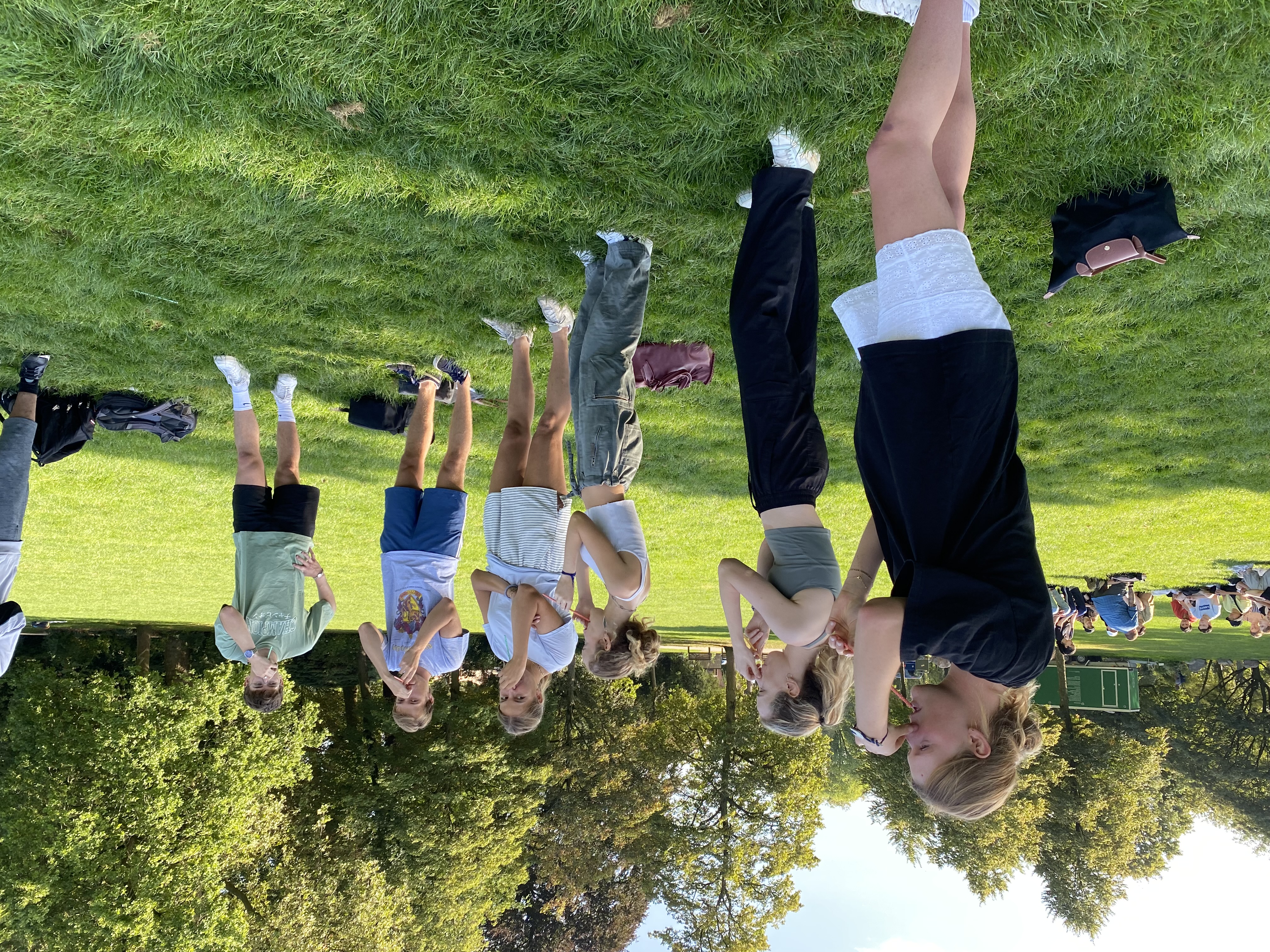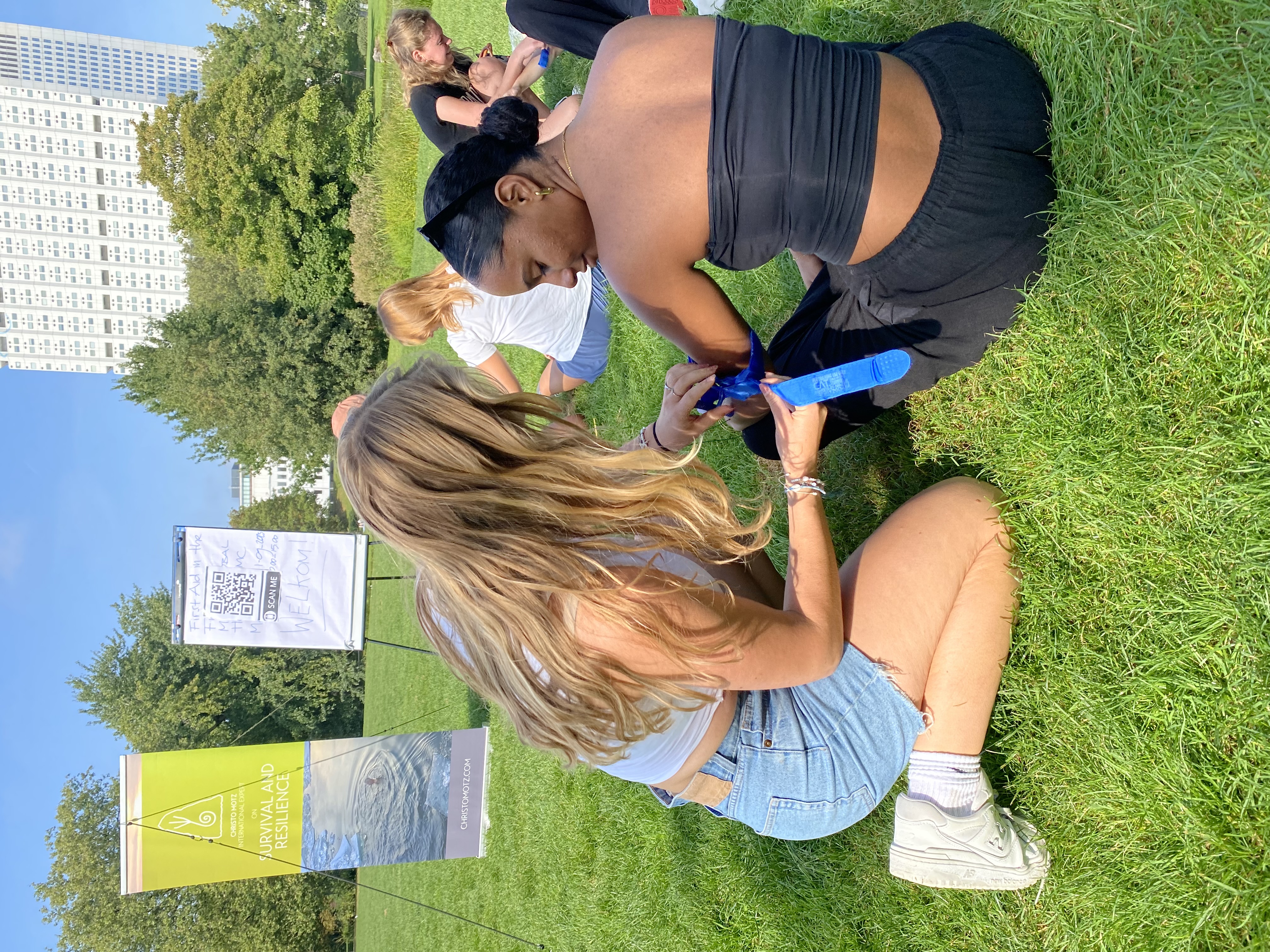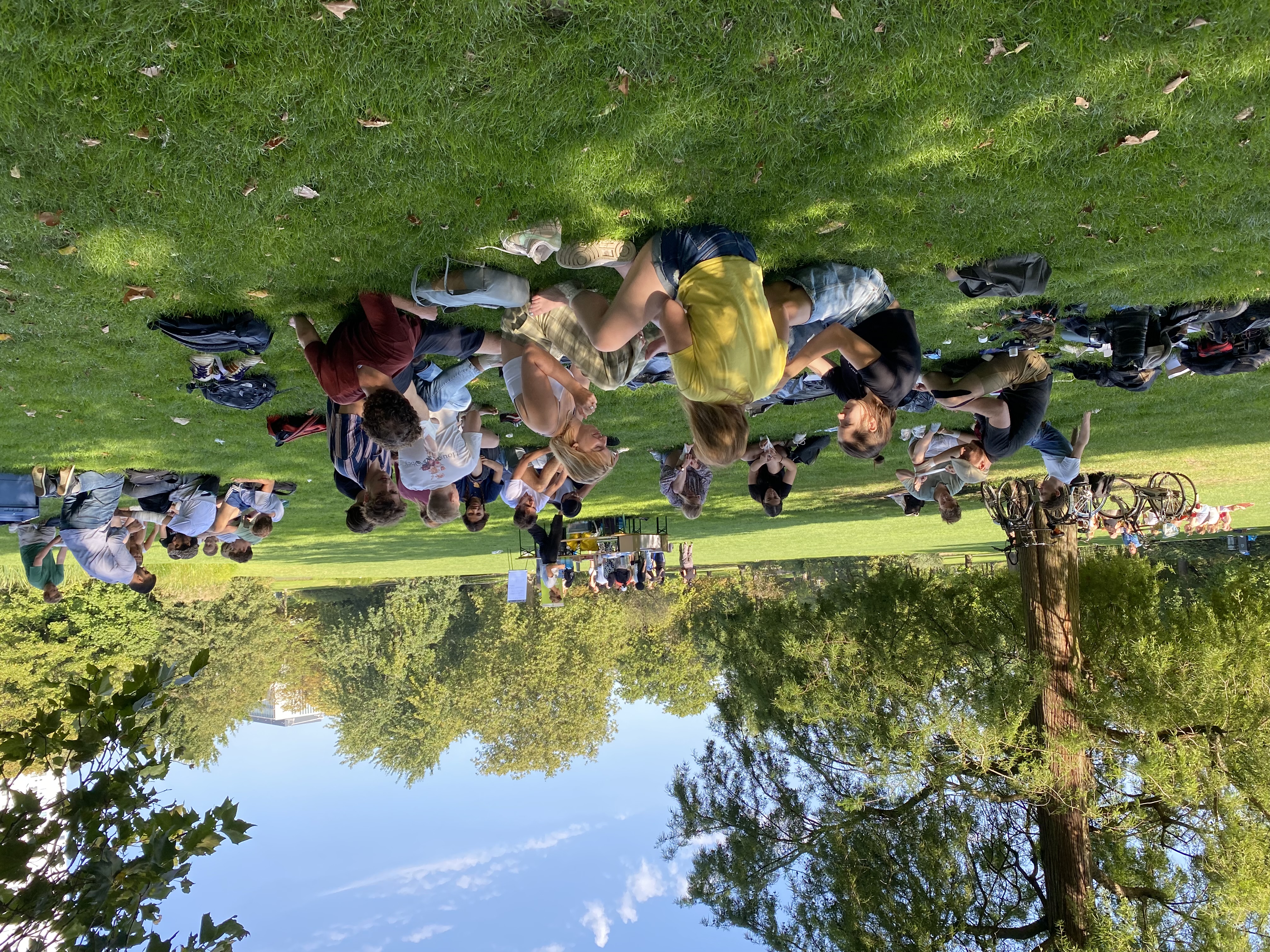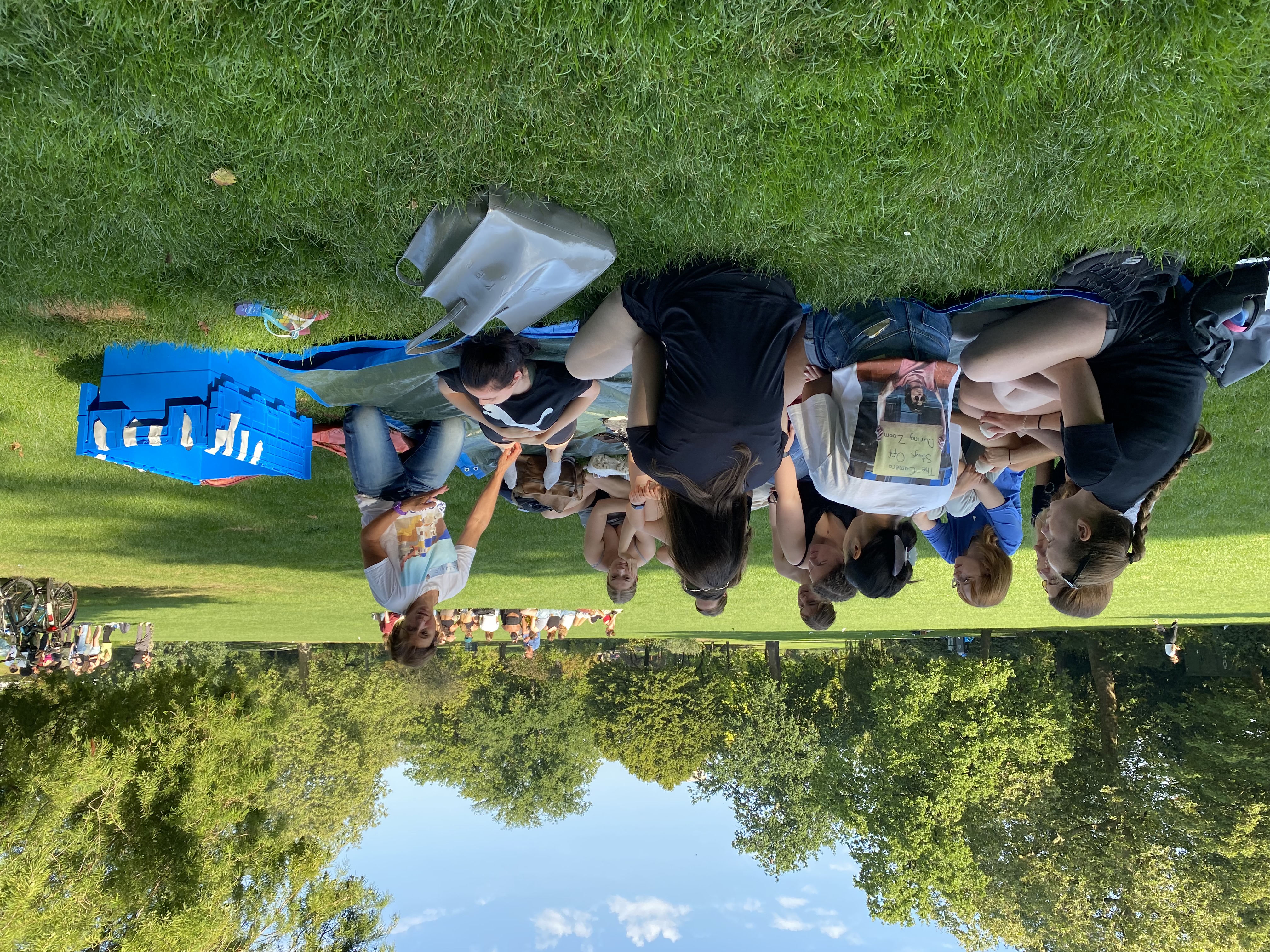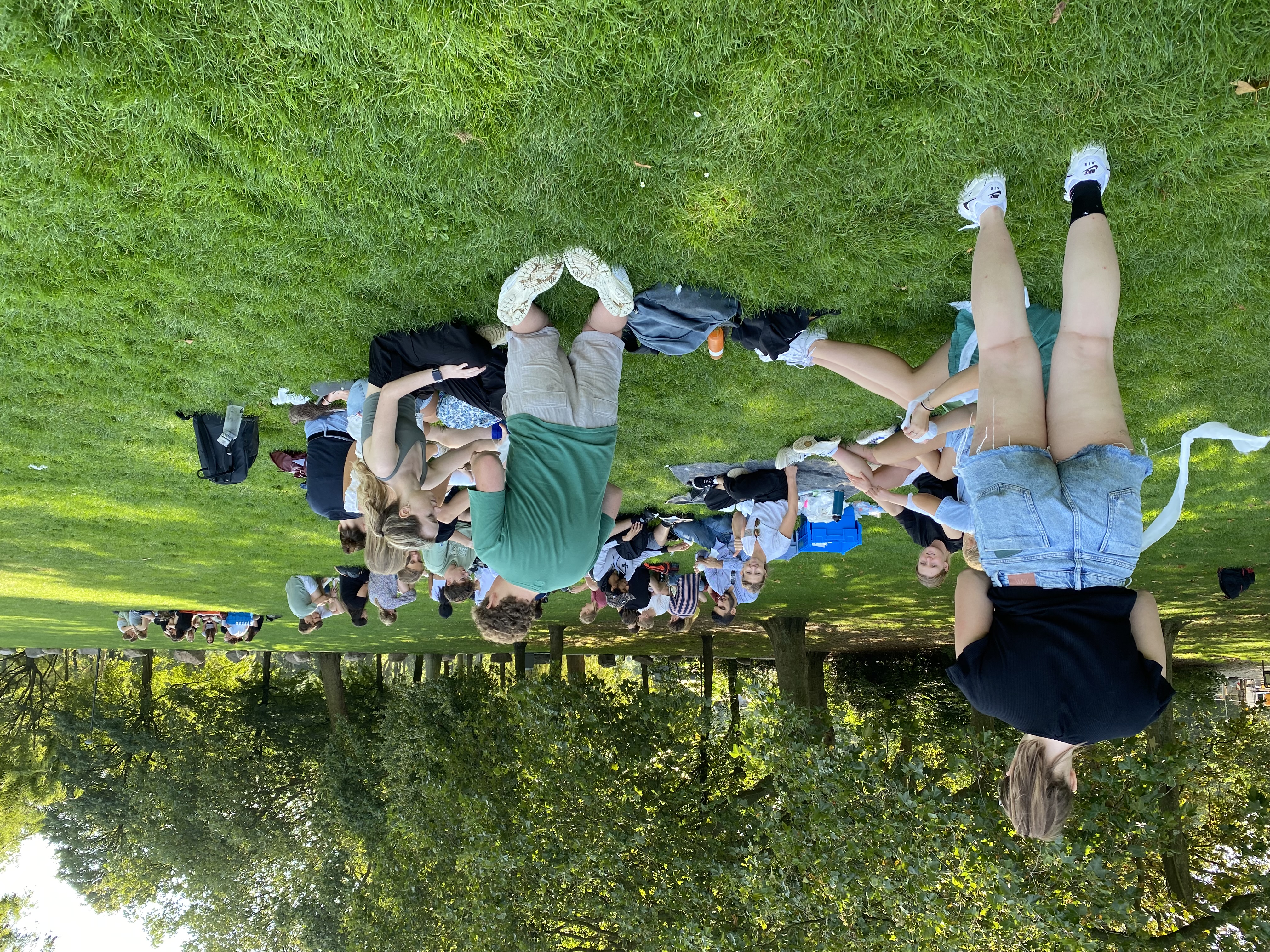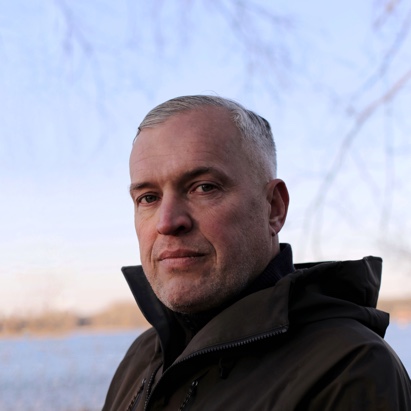First Aid in the Wilderness, Minor Global Health Erasmus MC, Rotterdam, Netherlands
An account of a training in the open air
Today the annual training ‘’First Aid in the Wilderness’’ took place in the park opposite the Erasmus Medical Centre in Rotterdam. I have been organising this training for over fifteen years.
MINOR GLOBAL HEALTH
This training is part of the Minor Global Health programme that is coordinated by Dr Jan Nouwen, internist-infectiologist at Erasmus MC. Today a total of 112 students participated, of which 100 third-year medical students, plus three from ESHPM (Erasmus School for Health Policy & Management), four from EUC (Erasmus University College, two from the USA, one from Spain and one from the Netherlands), four from clinical Technology (Erasmus MC - Delft University of Technology) and one medical student from Indonesia (Medical Faculty Hasanuddin).
INTERNSHIP ABROAD
In two weeks, 112 students will go abroad for a six-week internship in hospitals in: South Africa, Tanzania, Kenya, Uganda, Zambia, Ghana, Bangladesh, Indonesia, Malaysia, Taiwan, Oman, Brazil, Colombia, Suriname and Cuba. This year, sixteen countries are involved in this programme, including the Netherlands.
The USA, Iran, Ecuador, Zimbabwe and India are also part of this network, which consists of twenty-one countries with fifty different institutes.
These young people will soon go out into the wide world, full of expectations, ideals and plans. That creates obligations.
PROGRAMME
The programme has developed over the years. Years ago we started with practical lessons in the lecture halls, until I decided to take the students outside.
The park in front of the Erasmus Medical Center is ideal for this, and today was warm and sunny.
EXPERIENTIAL LEARNING
You learn the most by doing. Not just the “hard skills”, such as how to tape a sprained ankle, how to cover a blister, how to apply a pressure bandage to an extremity in case of a snake bite, how to bandage an injury, how to apply a tourniquet under pressure in the case of a heavily bleeding victim or how do I move safely and as inconspicuously as possible through a potentially dangerous area, but also in the field of "soft skills", such as communication and cooperation within a team. All that was discussed.
TEAM
My team consists of specialists from different backgrounds. I have a large network at my disposal. Today I worked with three doctors, including Melanie, an ER doctor, Maarten, a former civilian defense doctor and trainer, Isabelle, a medical specialist in training, Robin, a Land Search and Rescue specialist, Freek, a military police officer instructor, Lennart, an ambulance nurse and the two Lotus employees Ad and Jelte. Their efforts contributed greatly to making this day a big success.
IN MEMORIAM
The welcome speech was traditionally given by Jan Nouwen. I then took the floor and dedicated my introduction to the recent death of Colonel and former surgeon Walter Henny, who once set up First Aid education in the EMC together with his colleague Frans Rutten. I met Walter in 1998, and together with fellow instructors I taught First Aid to second-year medical students. Many years later, Walter retired and offered me the opportunity to continue and further develop First Aid education from the Medicine department.
Walter passed away on June 30 as a result of a tragic accident during the CIOMR summer conference in Helsinki. He died doing what he loved most. Walter would again contribute to this year's training, but unfortunately this was not to be. I experience his death as a great loss. I continue to work in his spirit.
STATIONS
I had six stations set up and each group consisted of about seventeen to twenty students. Spread over the field, the team moved from one station to the next after forty minutes: Taping, Bandages, Bites and Stings, Safety and Security and a Practice Scenario focusing on Situational Awareness, triage, the CABCD protocol, emergency communication and collaboration.
This part was carried out by four team members, with one or two leaders appointed by the group to streamline the process.
A twenty-minute case was then rolled out with a debrief afterwards.
PERFORMING UNDER PRESSURE
The station Performing under pressure was given by me. Since 2014, I have been providing training in the field of breathing and situational awareness, especially for the fire brigade, where the starting point is how to avoid being sucked into an incident. I taught medical students how to sharpen their senses while travelling and in everyday life, partly by consciously using their breathing.Tactical breathing is particularly important when a tourniquet must be applied under high pressure. After a brief instruction I had them run across the field and when they returned they had fifteen seconds to effectively apply a tourniquet to a fellow student. Sweaty and happy faces were the result.
ELEMENTARY SURVIVAL MEDICINE
At the end of the afternoon I handed out my English book Elementary Survival Medicine (revised edition August 2023) and my emergency card as part of the lesson plan to the participating students, so that they can start their adventure well prepared.
CONGRESS
On 7 and 8 November 2024, Jan Nouwen and his team will organise a two day Global Health Education Conference in Rotterdam, where all coordinators and guest speakers will be present.
Finally
Finally, I wish the participating students an inspiring, educational and safe journey.
